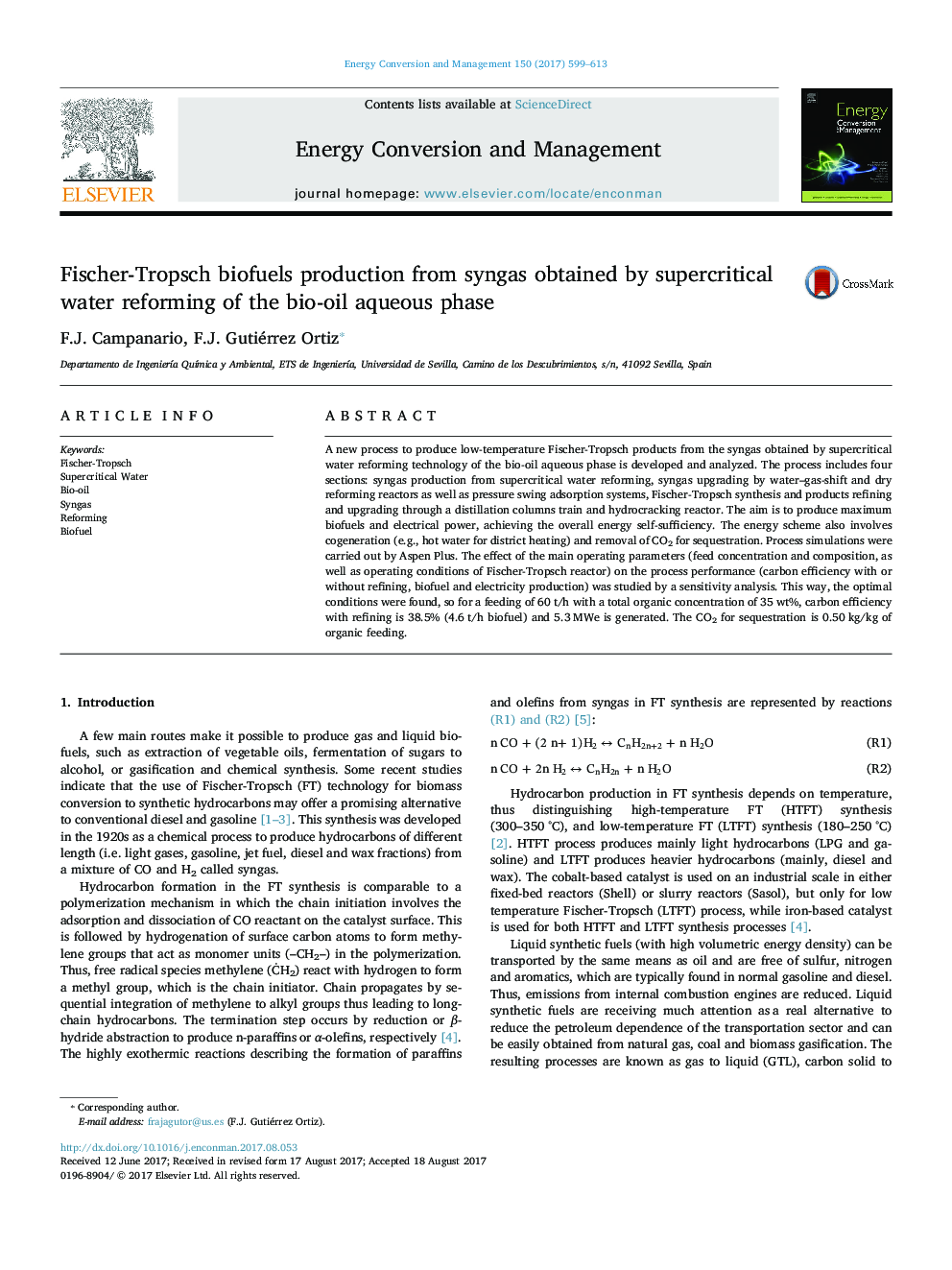| Article ID | Journal | Published Year | Pages | File Type |
|---|---|---|---|---|
| 5012283 | Energy Conversion and Management | 2017 | 15 Pages |
Abstract
A new process to produce low-temperature Fischer-Tropsch products from the syngas obtained by supercritical water reforming technology of the bio-oil aqueous phase is developed and analyzed. The process includes four sections: syngas production from supercritical water reforming, syngas upgrading by water-gas-shift and dry reforming reactors as well as pressure swing adsorption systems, Fischer-Tropsch synthesis and products refining and upgrading through a distillation columns train and hydrocracking reactor. The aim is to produce maximum biofuels and electrical power, achieving the overall energy self-sufficiency. The energy scheme also involves cogeneration (e.g., hot water for district heating) and removal of CO2 for sequestration. Process simulations were carried out by Aspen Plus. The effect of the main operating parameters (feed concentration and composition, as well as operating conditions of Fischer-Tropsch reactor) on the process performance (carbon efficiency with or without refining, biofuel and electricity production) was studied by a sensitivity analysis. This way, the optimal conditions were found, so for a feeding of 60Â t/h with a total organic concentration of 35Â wt%, carbon efficiency with refining is 38.5% (4.6Â t/h biofuel) and 5.3Â MWe is generated. The CO2 for sequestration is 0.50Â kg/kg of organic feeding.
Related Topics
Physical Sciences and Engineering
Energy
Energy (General)
Authors
F.J. Campanario, F.J. Gutiérrez Ortiz,
